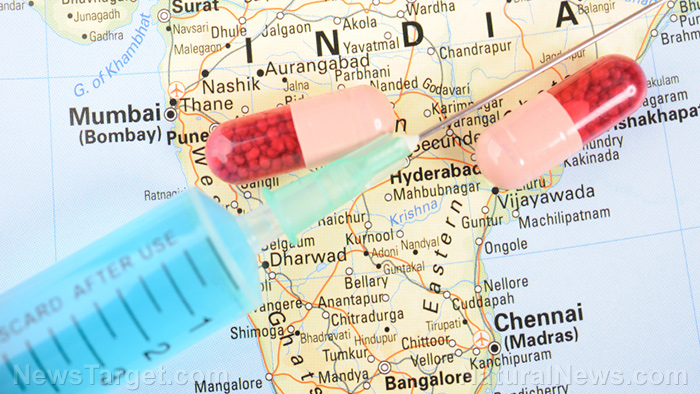Nightclub outbreaks test South Korea’s coronavirus outbreak strategy
05/15/2020 / By Franz Walker

South Korean officials are facing difficulties handling a recent outbreak of the coronavirus (COVID-19) linked to nightclubs in Seoul’s popular Itaewon neighborhood. Several of the nightclubs in question are frequented by gay customers, some of who have been wary of coming forward for testing due to the country’s conservative culture.
Authorities are trying to track more than 5,500 people who visited the bars between April 24 and May 6. More than half, however, remain out of reach while the number of infections linked to the bars continues to rise. Seoul Mayor Park Won-soon confirmed that 101 coronavirus cases have been linked to the nightclubs, up from 86 yesterday.
“South Korea’s quarantine system is now facing a challenge after the group infection from the Itaewon clubs,” said Yoon Tae-ho, director-general for public health policy at the health ministry, during a briefing Tuesday. Yoon confirmed that the country tested 12,000 people Monday, up from a daily average of about 5,000.
Threat to South Korea’s testing strategy
The nightclub outbreaks pose the most significant threat yet to South Korea’s success in controlling the coronavirus within its borders through rapid and widespread testing. Instead of imposing strict lockdown measures, the country has largely relied on its testing program, which allowed health officials to identify and isolate people infected with the virus before they could be able to spread it. (Related: South Korea’s coronavirus testing spree is keeping its death rate low.)
This strategy relies on people’s willingness to get tested and volunteer personal information. For months, the strategy worked — from late April until the most recent outbreak, Seoul saw the number of new daily cases drop to only one or two, sometimes even zero.
For the Itaewon outbreak, officials have encouraged anyone who visited any of the affected bars during the past could of weeks to get tested. However, this is complicated by the fact that the incident happened in a popular area for gay people, which goes against the country’s more conservative views.
According to Kwak Hye-weon, a professor at Daekyeung University, the country’s culture can make it harder for gay people to come in for testing. “That makes potential victims of the infection more likely to stay in the dark rather than voluntarily come forward for testing.”
Encouraging people to get tested
For their part, South Korean health officials are promising that anyone who visited the bars and wants to get tested will not be subject to any prejudice.
“I heard some people are reluctant to get tested for fear of being criticized,” said Korean Centers for Disease Control and Prevention head Jeong Eun-kyeong during a recent press briefing. “We will try hard to make sure everyone receives a test without feeling uncomfortable or prejudiced against.”
South Korea’s drive-through testing sites may help solve the issue. In late February, when a cluster of cases in Daegu City was tied to a religious sect, health officials encouraged people worried about anonymity to get tested that way.
“I think they should do the same this time to avoid the worst and help potential patients get tested out of public sight,” said Ki Moran, an epidemiologist at the National Cancer Center.
Health officials have also promised that they would not ask for or reveal too much personal information if people come forward.
Yoon stated that people looking to get tested “don’t need to specify the club they visited. Just tell us you were in the same district and want to be tested, for free.”
“A day’s hesitation would cost the entire community an entire month before returning to normal daily life,” he added.
Learn more about the ongoing coronavirus outbreak over at Pandemic.news.
Sources include:
Tagged Under: Asia, coronavirus, covid-19, epidemic, Flu, gay, hygiene, infections, Itaewon, korea, outbreak, outbreaks, pandemic, South Korea, superbugs, testing, virus



















